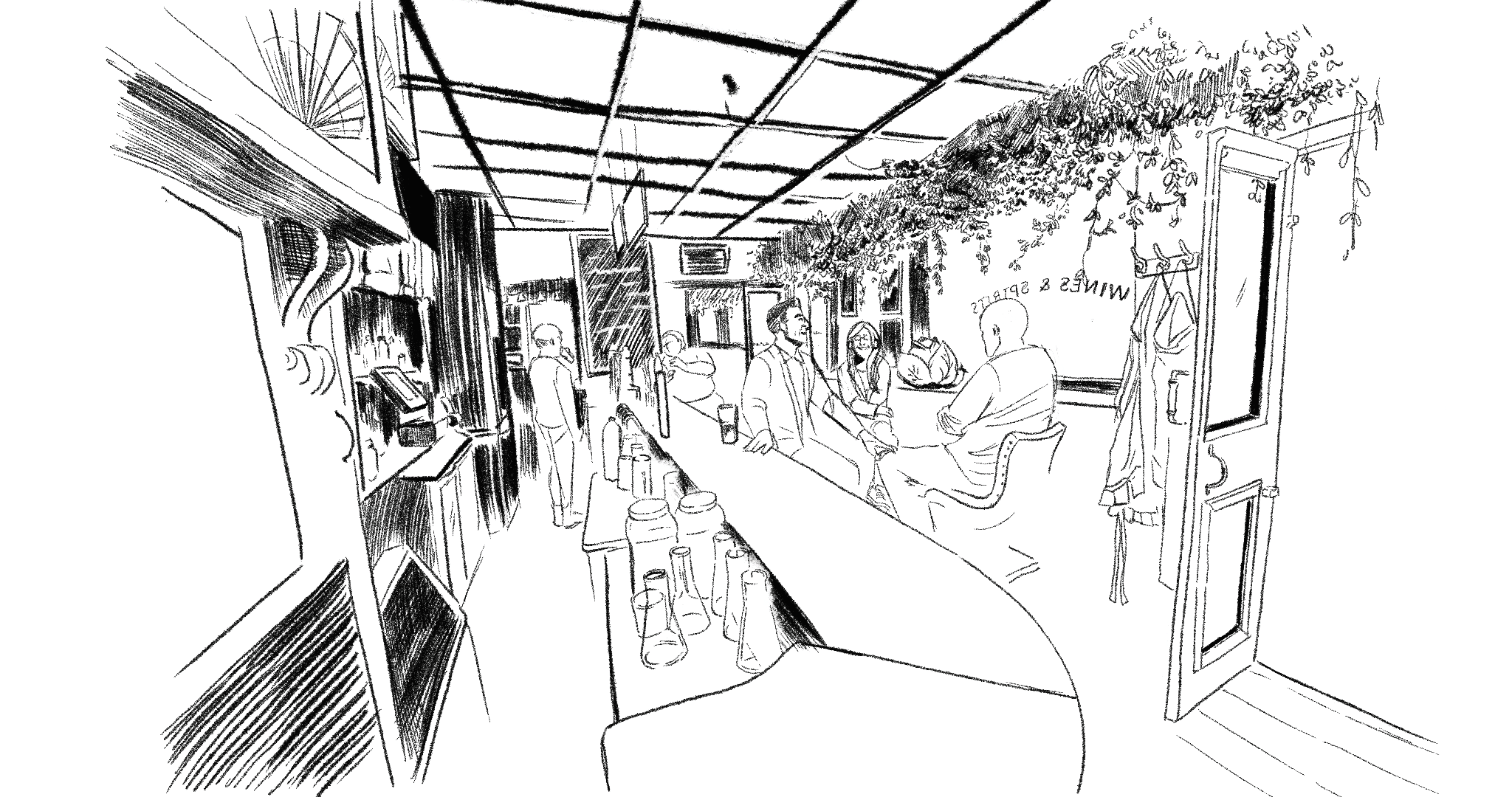
Built in 1602 and decorated as a café for dockers, The Seven Stars pub is a long corridor split into three rooms. The East Wing and the West Wing house thin wooden chairs with tables covered by a green and white tablecloth. Occupying half of the main hall is a bar with glass cabinets. The ceiling hangs low, and the dimly lit rooms supported by dusted timbers look up to street level.
Opposite, black railings fence off the gothic Royal Courts of Justice. In the evening, drinkers lean against them. Yet for all its charm, sentimentality and quaintness, there is something sorrowful in this quiet hostelry. The conversation is of the world, the future, and those re-enacted stories that polite people pretend are fresh.
READ MORE: ‘How to procure semen from a bull’ | Things I Heard In The Pub
Try to picture a tourist brochure called ‘Miss Marple’s England’ and a segment dedicated to inns, and then you can see this heightened idealism stifling reality. There are no sunken-eyed skeletal-featured men hunched in anoraks on barstools. And your Lonesome Tippler realises there is not an English accent in earshot. A Californian woman, designated tour guide for the evening, tells her companions: “This is a real eccentric British pub, real Shakespearean!”
A female friend of hers orders a cheeseburger, but thankfully one of her group asks for the rabbit. They don a conglomerate of jeans, joggers, and ‘sneakers’. Between mouthfuls, they discuss future dinner parties. Watching them from a picture hidden in the corner is a middle-aged man wearing a macintosh and trilby hat, pint in hand. He is leaning across the bar, perhaps having returned from a day out at the races, as a bespectacled bartender polishes a glass. His long nose, pinched face, and thin frame render him an alien to today’s healthy swill of drinkers.
Moving from the West Wing towards the bar, another photograph shows the faces of Stan Laurel and Oliver Hardy, taken from Mickey Finn’s 1937 film Way Out West. Mr Hardy was born in 1892 in Harlem, Georgia, and his partner Mr Laurel was born two years earlier in the market town of Ulverston, Cumbria. Their comedy made millions laugh, but in this photograph, as with the man in the trilby hat, they stand in a saloon alone, looking out to the crowded pub in Central London.
READ MORE: Closing Down | The fading idea of the pub
And there it is; the once-world-famous now just as anonymous as the chap back from the races in his rain-soaked mac. Amidst this strange attempt to preserve the decayed is a regular of The Seven Stars. He is a black and white cat called Clement Attlee, and he occupies his reserved seat at the bar, curling up on the padded cushion. The bartender confirms he is named for the former Labour prime minister, who oversaw the opening of the National Health Service after the Second World War.
Soon Britain, and much of Western Europe, entered what is referred to as a cultural revolution. For many, the devastation of that war and the changes which followed in the coming decades meant life as it had been could no longer go on. The rapid dismantlement of their values which held our society together, left many ghosts in this country.
Some of them are in photographs hanging on the walls of pubs throughout our land. Others are left alone on street corners, knowing they cannot turn back or go forward. You can see ghosts. They are all around. All you have to do is stare hard enough. This pub is a House of Mirrors whose warped reflections show us what we were and have become.
Disposable Cam is a Scouse journalist. He is in the pub.


